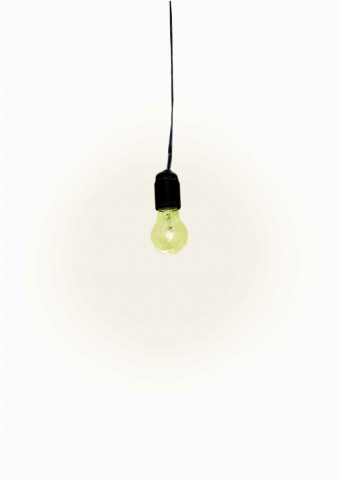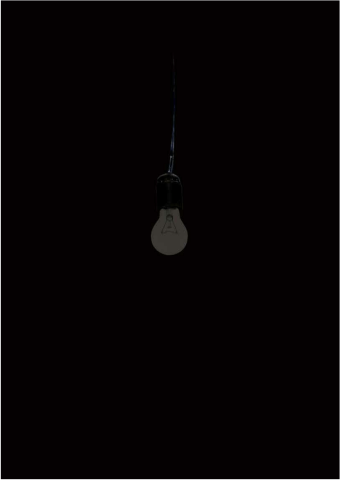Issue:
‘THE AVERAGE PERSON WILL NOT EVEN KNOW WHAT PIECE OF INFORMATION HAS BEEN DESIGNATED A STATE SECRET,’ OR WHO MADE IT SO
Shhh. The lights go out for whistle blowers and (possibly) journalists
by David McNeill

In April 2011, while Fukushima’s fires still smoldered, foreign journalists scrambled to find sources that could shed any light on what was happening. In an Iwaki City car park, I found a nervous maintenance worker on a rare R&R break from the Daiichi plant.
Among his bombshell claims was the allegation that the earthquake had damaged Reactor 1 before the tsunami knocked out the plant’s cooling system. Conditions onsite were Spartan and dangerous, he said. Workers were exhausted; nobody at the top seemed to know what they were doing.
Nearly three years later, with parliament set to pass a new state secrecy bill as No.1 Shimbun goes to press, foreign correspondents might ponder a sobering question: Would they find themselves on the wrong side of the law if they did the same thing today?
No, insists Prime Minister Shinzo Abe. Since the bill was submitted to the Diet on Oct. 25, he has repeatedly denied it would gag the media or restrict the public’s right to know. “There is a misunder standing,” he told the Diet on Nov. 26, the day the Lower House passed the bill. “It is obvious that normal reporting activity of journalists must not be a subject for punishment under the bill.”
Few people outside the ruling bloc of the LDP and New Komeito, however, seem to believe him. The legislation has triggered protests from Human Rights Watch, the International Federation of Journalists, the Federation of Japanese Newspaper Unions, the Japan Federation of Bar Associations and the FCCJ. Hundreds of Japanese academics have signed a petition demanding it be scrapped.
As the bill made its way through the Diet, an expert for the UN Human Rights Council said it included “serious threats to whistleblowers and even journalists reporting on secrets.” “Transparency is a core requirement for democratic governance,” warned Frank La Rue, the special rapporteur on freedom of expression.
Mizuho Fukushima of the Social Democratic Party delivered her verdict at an FCCJ press conference on Nov. 14. “It represents a grave threat to journalism because it covers such a wide and vague range of secrets,” she said. Fukushima pointed out that the bill casts its net so wide it even includes a clause for “miscellaneous” secrets.
Inevitably, perhaps, debate on the new law has been viewed through the prism of the Fukushima crisis, which revealed disastrous collusion between bureaucrats and the nuclear industry. Critics say journalists attempting to expose such collusion today could fall foul of the new law, which creates three new categories of “special secrets:” diplomacy, counter terrorism and counter espionage, in addition to defense.
Even government supporters accept that the law hugely expands the bureaucratic state’s discretion to keep information under wraps. Until now, only the Defense Ministry could label information “state secrets.” The law gives that power to elite bureaucrats in every government agency and ministry. Breaching those secrets will be punishable by up to 10 years in prison and up to a ¥10 million fine.
An unofficial translation of the new law* cites a long list of information designated confidential, including management, planning or research documents by the Self Defense Forces, types or numbers of weapons, munitions and airplanes, specifications of weapons in development stages and air based photography of defense facilities. The law binds all relevant public servants to secrecy even after they quit.
During Diet deliberations in November, Masako Mori, the minister in charge of the bill, admitted that security information on nuclear power plants could be designated secret because the information “might reach terrorists.” But who decides on such likelihoods? Bureaucrats, said Sohei Nihi, a Japanese Communist Party lawmaker who spoke at the Club alongside Fukushima.
“One of the most dangerous aspects of this bill is that the average person will not even know what piece of information has been designated a state secret,” or who made it so, he told the FCCJ audience. He and Fukushima said that even lawmakers would not be safe from the law’s huge reach. “The bill is fundamentally flawed and must be scrapped,” he concluded.
Few of the bill’s opponents argue against Japan’s right to protect classified information. Some say Japan has long been Asia’s diplomatic leaky bucket. In The Economist magazine last month, Nobutaka Machimura, an ex-foreign minister who heads the LDP’s taskforce on the law, said America and other Japanese allies “complain that information entrusted to it is too often leaked.”
Article 1 of the law states its purpose is to “prevent leakage of designated secrets . . . to guarantee the security of this state and its people.” But independent law maker Taro Yamamoto, who won a Diet seat on an antinuclear ticket last December, said the Fukushima accident showed that when it counted, the Japanese state acted against the people.

He reminded the FCCJ audience that in March 2011, government bureaucrats withheld data harvested from an expensive radiation tracking system, called SPEEDI (System for Prediction of Environmental Emergency Dose Information).
Thousands of refugees from the town of Namie, about five miles from the plant, inadvertently fled into the most contaminated areas. The information was, however, passed on to the U.S. Embassy and military in Japan, allowing its personnel to plan for evacuation. “All this was before the new secrets bill,” said Yamamoto.
The SPEEDI debacle was far from the only example of information management or censorship during the Fukushima crisis. For the first few days of the nuclear drama, the public airwaves filled up with government officials and elite nuclear scientists who initially said that there would be no radiation crisis. Academics straying from that message were effectively banned from television and radio. It was two months before Tepco admitted that the Daiichi plant had suffered a triple meltdown. Journalists without independent sources were left in the dark.
New York Times reporter Nori Onishi sets the scene of that time. “In the first couple of months after 3.11, the public inclination was to still trust what the government was saying and what the media was describing, but that started to break down by May,” he says in a paper by Kyle Cleveland, a professor at Temple University Japan. “The foreign media had written about the meltdown in the first week of the disaster, and the Japanese government had criticized the foreign media for being alarmist, and here they were a few months later saying, “Oh yeah, I guess there were meltdowns.”
Understandably, perhaps, the government has mostly attempted to steer debate away from Fukushima and toward rising tensions in Asia, where it feels it is on safer political ground. A draft of the secrecy bill, published in the Asahi online newspaper in October, cites the “increasingly complex international situation” and the “growing importance of securing information related to national security.”
One possible application for the new law could be seen in November, when Japan held some of its largest ever military exercises in Okinawa. Six Japanese warships, 380 military planes and 34,000 troops took part. Local journalists complained of restricted access and arbitrary bans. Protestors say they were harassed. Journalists who argued against the restrictions were told they should “stop trying to help China,” said one newspaper reporter, who spoke on condition of anonymity.
Japan already restricts classified information. The National Public Service Law mandates punishment for civil servants who leak to the media; the Mutual Defense Assistance Law stipulates 10 years in prison for whistleblowers who reveal secrets on Japan’s alliance with the U.S. Violators of the 2002 Self Defense Forces Law face five years in jail if they reveal classified national security issues.
Opponents of the bill say Japan’s press club system also helps restrict the flow of information from official Japan to the public. The latest (2013) World Press Freedom survey, published by journalism watchdog Reporters Without Borders, ranks Japan just 53rd, behind most advanced democracies and even Lithuania and Ghana. “Why do we need another law,” asked Yamamoto. “What the government is truly trying to do is increase the power of the state.”
Partly in response to such criticisms, and under pressure from its Buddhist backed coalition partner New Komeito, the LDP has inserted a clause giving what it calls “due consideration” to the public’s right to know. Article 21 of the bill cites “appropriate” news gathering activities, meaning those that “mainly have the purpose of serving a public interest, to the extent they do not constitute violations of law or employ exceptionally inappropriate means.” Unfortunately, there is no independent outside body to monitor how this will be applied.
For hints on how the government will define “inappropriate,” some commentators have been recalling the case of Takichi Nishiyama. In 1971, he famously reported for the Mainichi Shimbun newspaper that Tokyo had agreed to secretly absorb substantial costs of the reversion of Okinawa from U.S. to Japanese rule in 1972, including $4 million to restore farmland that was requisitioned for bases. The young journalist was convicted of handling state secrets after revealing his source, a married Foreign Ministry clerk with whom he was having an affair.
In 2000 and 2002, declassified U.S. diplomatic documents from the National Archives and Records Administration proved beyond all doubt that the pact existed. A senior Ministry of Foreign Affairs official later concurred. But Nishiyama has never been cleared. His crime, it seems, was using “inappropriate means.””
*Translation copyright belongs to Dr. Sanae Fujita, (Human Rights Centre/ School of Law, University of Essex, United Kingdom) and Mr. Saul Takahashi.
David McNeill writes for The Independent, The Economist, The Chronicle of Higher Education and other publications.

